What Does Genesis 6:3 Actually Say?
Comments from "Ted Wilson’s Obsession with 'The Great Controversy'” January 19, 2023, Spectrum

And the Lord said, My spirit shall not always strive with man, for that he also is flesh: yet his days shall be an hundred and twenty years. — Genesis 6:3 (KJV)
If you were to ask the average Seventh-day Adventist, “What does Genesis 6:3,” above, “mean?”, they would confidently tell you that, in an era about 1,600 years after Creation, looking over an Earth which had become absolutely saturated with violence and malfeasance of all kinds, God pronounces a warning; a probationary countdown: In one hundred and twenty years, He will destroy mankind with a global flood, and this death sentence begins the story of the ancient patriarch, Noah.
I know this, because, just recently, the SDA Adult Sabbath School Bible Study Guide said so:
Noah could have spent his time and resources building a home for himself, but he chose to make a drastic change in his life and to spend 120 years of that life in following the call of God to build the ark.
I also know this because, as a lifelong SDA, it’s what was I was taught as a child: This Cradle Roll illustration, below, by famed SDA artist Harry Anderson, is burned into my infant memory:
Here’s another one, Building The Ark, Noah's Preaching Scorned, below, also by Anderson. (It was made for the Church of Jesus Christ of Latter-day Saints, for whom the painter frequently worked):
Even attending church a short time before the 2020 pandemic, I listened as one of our gifted young adults gave the children’s story, and informed her small charges, much as I had been instructed half-a-century earlier:
For 120 years, Noah built an ark while preaching to the antediluvians of the coming flood.
This is SDA boilerplate. I’m guessing this tutorial moment went easily past most people in the sanctuary. But it provoked a small grumble from me; one loud enough for a fellow parishioner to turn and look in my direction.
So, in January 2023, I was reading comments on Spectrum Magazine’s forum; responses to an essay titled “Ted Wilson’s Obsession with ‘The Great Controversy.’”
Suddenly, I saw this statement by one of the board’s frequent contributors:
Noah preached for 120 yrs, no doubt using all his resources to do so even though essentially no-one believed him
Spectrum’s website is a rough-and-tumble place; one where any and all topics of SDA import get written about and debated. Not everyone on the site is an Adventist, and many are former ones. It’s moderated, but lightly so, and certainly not to exclude views the denomination deems verböten. It’s a medium for dialogue (its motto: “Community Through Conversation.”) And, since it is, I responded.
This began one of the most compelling exchanges I have had on the site, or with any fellow believer, about an exegetical point.
I’ve reproduced edited portions of what he and I wrote to each other, below, beginning with my reply:
The Bible doesn’t say what you’ve stated.
It doesn’t say Noah worked 120 years building the ark. (In fact, it actually affirms he could not have done so.)
Further, it doesn’t say anything about him preaching.
In Genesis 6:3, God was not talking about human “probation.”
In Gen. 6:3, God was announcing an end to the long, multi-century lifetimes the patriarchs had enjoyed until that time.
These were, no doubt, a key factor in the profligacy of the era. This is what His statement is about. (See my HERETIC. essay, “So, Why Did Human Lifespans Decrease?”)
Essentially, in Genesis 6:3, God was putting a figurative addendum to the statement the psalmist would later make in chapter 90, verse 10 (NIV, here, and forward, except where noted):
“Our days may come to seventy years, or eighty, if our strength endures…,” but our “days will be a hundred and twenty years,” at most.
This is why, in the chronologies, while the length of human lifetimes between Adam and Noah were consistent, after Noah, they radically drop in length. (Read Gen. 11:10-26.)
My interlocutor responded to my initial claim — Noah had not preached — by citing Peter’s famed statement on him:
“And spared not the old world, but saved Noah the eighth person, a preacher of righteousness, bringing in the flood upon the world of the ungodly.” 2Pet 2:5. (KJV)
I replied:
a) The Noachian narrative never says that Noah preached to the antediluvians; i.e., such a statement is not found in Genesis, where Noah’s story is found.
b) As you’ve indicated, the sole basis for this idea appears in 2 Peter 2:5, where the apostle says that God
“did not spare the ancient world when he brought the flood on its ungodly people, but protected Noah, a preacher of righteousness, and seven others.”
In its notes, my NIV study Bible calls this “a description of Noah found nowhere else in Scripture,” while adding similar ones are located in the works of Josephus and other non-biblical historians. This makes comparing it with other like, biblical descriptions, particularly in Peter, difficult-to-impossible.
Complicating this is the reference found to Noah in Hebrews 11:7, which you also supply:
“By faith Noah, when warned about things not yet seen, in holy fear built an ark to save his family. By his faith he condemned the world and became heir of the righteousness that is in keeping with faith.”
Here, the author of Hebrews describes Noah as “heir of the righteousness that is in keeping with faith.” In other words, his faithful act was credited to him as righteousness, as Abraham’s was to him. (Gen. 15:6)
So, here are the questions which complicate acceptance of your response:
Does Peter’s statement mean that Noah preached to the people who would be destroyed by the coming doom; i.e., that he stood on wooden beams, passionately foretelling the apocalypse as listeners laughed and gestured, “He’s crazy,” as depicted in the cradle roll paintings?
Or do Peter’s words mean that Noah’s actions “spoke volumes,” and were, themselves, the loudest testimony he could give; that his righteous actions “preached”?
Or, do they imply both: That Noah preached, and lived honorably in God’s sight; the latter as the narrative states at its outset? (Gen. 6:8)
I’d argue that, without additional verses to further triangulate the statement, and/or a context which makes Peter’s meaning obvious, it’s not clear which of these meanings we are supposed to adopt, and/or if one of them overrules the others.
It’s not as straightforward as you seem to suggest, in other words…especially when we, lastly, add Christ’s own words about the antediluvians to the list: “They knew nothing about what would happen until the flood came and took them all away" (Matt: 24:39).
My challenger then endorsed the traditional opinion:
I think the text implies that Noah put his money where his mouth was: he built a massive boat on dry land in a world that knew no rain, Gen 2:5, well before the flood came…
(“A world that knew no rain” got my attention:)
This is another SDA talking point, and one which lacks biblical support.
Genesis 2:5 does not confirm Edenic weather conditions continued post- the Fall, and until the Deluge.
In other words, SDA apologists affirm that flora and fauna radically changed after sin, but, somehow, this atmospheric detail did not.
IOW, despite no explicit biblical statement, we are to conclude that no rain fell on Earth for [their estimated] 1,600+ years. Why is this reasonable?
My questioner then challenged my central thesis. I’d said the 120 years reference was God putting a limit on human lifespans, and that it was not a “probationary” period in the wake of the coming flood.
So, he argued
a “life-span interpretation” for the 120 yrs given in the text would make sense if… suddenly we saw everyone’s lifespans decreased to around 120 yrs…
What’s next is the longest continuous portion of my response, and it explicates my central position.
This argument — of immediate, 120-year, penal lifespans — sounds like ones of those who say Adam & Eve should have died immediately after eating from the Tree of the Knowledge of Good & Evil, since God said “thou shalt not eat of it: for in the day that thou eatest thereof thou shalt surely die.” (Gen. 2:17 KJV). By your identical logic, why did Adam, then, live to be 930?
God’s pronouncements are typically executed over time, and often at great time lengths. This is a common understanding of how His statements often work.
Christ’s 1st coming. The birth of Isaac. The captivity of the Israelites. The destruction of the Canaanites. Christ’s 2nd coming. The Final Judgment. Even your flood timeline of 120 years. None of these prophesied events happens immediately.
So, this idea — that when God states human lifetimes will not get longer than 120 years, we should see everyone’s lifespans drop to that immediately — is absurd. It doesn’t fit how God talks or acts in the Bible.
Your example is Noah, who was over 500 when God called him. Should he have died right then, or, maybe, right after the flood?
I gave you the verses to read: Gen. 11:10-26. Just as you object, Noah does live to be 950; the third-longest of the patriarchs.
But Shem, his son, only lives to 600. None of the pre-deluge patriarchs ever lived less than 777. (That’s the lifetime of Lamech, Noah’s father, the shortest-lived one.)
Then Shem’s son, Arphaxad, lives to 438; less than half the lifespan of his grandfather, Noah. His son, Shelah, lives to 433.
Eber, his son, lives to 464.
Peleg, his son, lives to 239.
Reu, his son, lives to 239, also.
Serug, his son, lives to 230.
Nahor, his son, lives to 148.
Terah, his son, lives to 205.
Abraham, his son, lives to 175.
Isaac, his son, lives to 180.
Jacob/Israel, his son, lives to 147.
Joseph, his son, lives to 110.
This descent continues through the lifetimes of God’s people, all the way down to Moses — one of the last patriarchs for whom a lifespan is given — who dies at 120 (Deut. 34:7). Joshua, his successor, dies at 110 (Joshua 24:29).
No explanation is given, in the Genesis 11 chronology, for this precipitous drop in human lifespans. Adventists frequently offer, “Oh, it’s because they started eating meat.” But the text doesn’t say that. (Plus, we’re supposed to believe the pre-Flood patriarchs did all kinds of wickedness…but meat-eating was a bridge too far?)
What the text does say is God would limit human lifespans to 120 years. We know this is the case because a) the text says this, b) the lengths of human lifespans drop off a cliff, c) they stop at 120 years—forever, and, most of all, d) the “probationary” reading makes no sense.
HERE’S WHY THE “PROBATIONARY” READING MAKES NO SENSE:
In Genesis 5:32, the Bible says:
After Noah was 500 years old, he became the father of Shem, Ham and Japheth.
In Genesis 6:3, God makes His 120-year pronouncement.
In Genesis 6:7, God announces He will destroy man:
So the Lord said, “I will wipe from the face of the earth the human race I have created—and with them the animals, the birds and the creatures that move along the ground—for I regret that I have made them.”
In Genesis 6:8-22, God calls Noah and gives him the instructions for building the ark. One of those instructions, in v. 18, is:
you will enter the ark—you and your sons and your wife and your sons’ wives with you.
Then, in Genesis 7:6, 7:
Noah was six hundred years old when the floodwaters came on the earth. And Noah and his sons and his wife and his sons’ wives entered the ark to escape the waters of the flood.
In fact, Gen. 7:11 adds a rather un-Genesis-like bit of temporal detail to verse 6:
In the six hundredth year of Noah’s life, on the seventeenth day of the second month—on that day all the springs of the great deep burst forth, and the floodgates of the heavens were opened.
Completing Act 1 with v. 13:
On that very day Noah and his sons, Shem, Ham and Japheth, together with his wife and the wives of his three sons, entered the ark.
In other words, Noah’s 500 birthday is marked in chapter 5.
In chapter 6, God makes His 120-year statement, then his promise to destroy, then orders Noah to build the ark.
He’s 600 — 600 years, two months, and 17 days — when the Flood begins.
That’s only 100 years, not 120 years.
But, to make matters worse, Noah’s sons are married when God calls him (Gen. 6:18).
How old were Noah’s sons when they were married?
Were they 40, like Isaac?
Or were they much older? Shem had Arphaxad when he was 100 (Gen. 11:10).
What’s reasonable to believe is Noah’s sons likely got married in their 30s. This is when roughly all their descendants had children (Gen. 11:12-24), so it’s not unreasonable to think this was a norm.
Let’s go with 35 years, just for laughs. (Let’s also keep in mind they could have been older.) If so, this means, when God called Noah, Noah would have been about 535.
This would have been 65 years before the flood, not 120 years.
In other words, the 120-year probationary model is falsified by the Bible’s own mathematics.
You can, as you might, argue my estimate of Noah’s sons’ ages as conjecture. But it doesn’t matter. Even if Noah’s sons got married as newborn babies, or as fetuses, it’s not 120 years until the Flood. It’s less than a hundred years, because Noah had his first son at 502 (Gen. 11:10).
Voilà.
The only basis anyone could have for saving the 120-year probationary model is if they argue:
1) God’s 120-year decree (Gen. 6:3), then His promise to destroy (Gen. 6:7) are not concurrent, or necessarily so. They could have been made decades apart.
2) Ellen G. White embraces it more than two dozen times.
In From Eternity Past , ch. 7, “When the World Was Destroyed by Water,” p. 52, paragraph 3, she states:
“A hundred and twenty years before the Flood, the Lord declared to Noah His purpose and directed him to build an ark. He was to preach that God would bring a flood of water upon the earth. Those who would believe the message and would prepare by repentance and reformation, should find pardon and be saved.”
The Great Controversy, p. 337, para. 3:
“For a hundred and twenty years was sounded in their ears the warning to repent, lest the wrath of God be manifested in their destruction. But the message seemed to them an idle tale, and they believed it not.”
Patriarchs and Prophets, p. 102, para. 2:
“For a hundred and twenty years the preacher of righteousness warned the world of the coming destruction, but his message was rejected and despised.”
Patriarchs and Prophets, p. 92:
“A hundred and twenty years before the Flood, the Lord by a holy angel declared to Noah His purpose, and directed him to build an ark.”
And, so on.
To the first argument — that the 120-year decree and the promise to destroy are not necessarily concurrent — I would argue this is not the way the text appears to be written.
The Bible announces, at the end of ch. 5, that, after reaching his quincentennial, Noah has children.
Next, near the beginning of ch. 6, it announces God’s decree, then His and judgment.
For the probationary reading to make sense, we have to believe chapter 6 momentarily jumps backward in time, in order to note a decree God had actually made before the end of ch. 5. So, the end of 5 and the beginning of 6 are not sequential, as they appear to be, but overlap.
Or, said another way, we should read God’s 120-year decree as a flashback; a statement that, temporally, belongs in ch. 5, but, for narrative consistency, was placed at the beginning of ch. 6. (Naturally, then, Gen. 6:7 is a flash forward.)
This is unnecessary, it is convoluted, and it is ad hoc. Because it is, to the second argument, I say:
Ellen G. White was wrong. She was, in all likelihood, repeating the conventional wisdom, just like SDAs do today.
By the way: This doesn’t make her a false prophet, in my opinion. (She was correct as to the purpose of the Flood, which is the important part.) As she, herself, said, in Selected Messages, vol. 1, p. 37, paragraph 4:
“In regard to infallibility, I never claimed it; God alone is infallible. His word is true, and in Him is no variableness, or shadow of turning.”
Nor does the fact that SDAs, for some reason, haven’t worked out Genesis 6’s simple quantifications make them a false denomination, in my opinion. It just makes them wrong, in this instance, about what the Bible says regarding date-keeping.
Errancy is something, seemingly, SDAs never admit…especially regarding date-keeping.
However: If you can be wrong once, you can be wrong twice.
Keep that in mind.
My correspondent then came at me with a flurry, to which I briefly replied:
I think reasonable people are able to see that if Noah preached, he preached to other people, which could only have been the antediluvians…he wouldn’t have preached to his family, given that patriarchy meant they would have done what he wanted without question or remonstrance…
The Bible doesn’t say Noah preached to the antediluvians.
I think this and a few other, related questions depends on how one views the Flood…was it simply a build up of water that didn’t transform earth substantially, or was it the existential, horrific cataclysm in which Satan feared for his life, as egw notes…
If Satan is a spirit, as angels are (Hebrews 1:14), how could material circumstances make him “fear for his life”?
The fact that God said he created the rainbow to commemorate the Flood, Gen 9:13, suggests, convincingly, i think, that there wasn’t any rain anywhere before the Flood…
The Bible doesn’t say He created the rainbow at the existential moment He pronounces His covenantal blessing on it.
He sanctifies it, then. It doesn’t say this is the first appearance of a rainbow. As many SDAs do, you’re reading things into the text that aren’t there, and reading things out of it that are there.
Thrice.
That was, pretty much, the core part of the exchange. Of course, as these things are wont to do on Spectrum, the debate went on and on and on, with my challenger — a devout SDA, as you may have guessed — making more claims which, to me, ranged from typical to perfectly wild:
• He asserted the antediluvians’ lifespans had shortened due to “decreasing proximity to the tree of life”…plus meat-eating. I responded with a lovely piece of prehistoric cel art:
Of course, a lack of access to the Tree of Life did shorten lifespans, but from eternity (Gen. 3:22) to about 1,000 years, and not from about 1,000 years to 120.
In other words, if the cause of this drop in lifespans was a lack of access to the Tree of Life, there shouldn’t have been a nearly straight line in the lengths of lifespans between Adam and his great-great-great-great-great-great-great grandson, Noah.
• He said Noah had daughters whose husbands had not allowed them to board the ark. The Bible says no such thing.
• He said I was “proof-texting,” by putting Genesis 6:3 next to Psalm 90:10. But I’d not used the quote from Psalms to prove anything.
And, perhaps, the most odd:
• He said the divine orders for Noah to build the ark (Genesis 6:13-21) were not necessarily the first time God had given them. (This is similar to the aforementioned “flashback” argument…though, by making it, he was recognizing Gen. 6:3 / 6:7 as concurrent.)
In other words, God may have given them to Noah before — maybe…20 years before, hmm? — thus pushing God’s declaration from the 100-year mark to the 120-year mark.
I told him this was one of the most bizarre things I’d ever heard said about the Bible.
I exclaimed that no Old Testament scholar would look at Genesis 6 and say, “It’s possible God is saying something to Noah, in verses 13-21, that He has said to him before.”
My questioner was doing all of this in order to get Noah’s call down to the 120-year mark before the Flood, in order to save the “probationary” model Adventists endorse.
But it doesn’t make sense. Also, it makes God into a liar, because it compels Him to tell Noah to take along sons and daughters-in-law (v. 18) who do not exist.
In summary:
• Genesis 6:3 records God’s pronouncement that human lifespans will, henceforth, be limited to 120 years.
This edict takes effect with the generation after Noah, and proceeds from there.
• The alternate, “probationary” model SDAs have long held is ad hoc, and does not conform to biblical data.
Though I’ve reckoned this conclusion independently, I’m not the first to reach it. Today, even science recognizes this 12-decade barrier, if not the reason for it.
We actually don’t have a 120-year record of Noah’s activities.
He’s introduced at 500 years of age. The flood ends when he is 601 years, 2 months, twenty-seven days old (Gen. 8:14). His drunkenness episode (Gen. 9:18-27) appears to happen shortly after that; presumably within the time it took to grow grapes to maturity and bottle them. (Today, this requires about 5 years.)
This needs to be pointed out to biblical chronologers — like my inquisitor, like Ellen G. White, like many SDAs — who seek to somehow make their numbers work within the conventional, so-called “probationary” reading of Genesis 6:3. Because, frankly, they can’t do it. It simply doesn’t hold water.




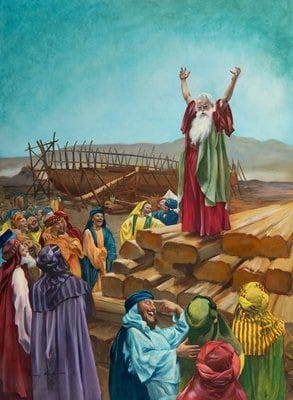
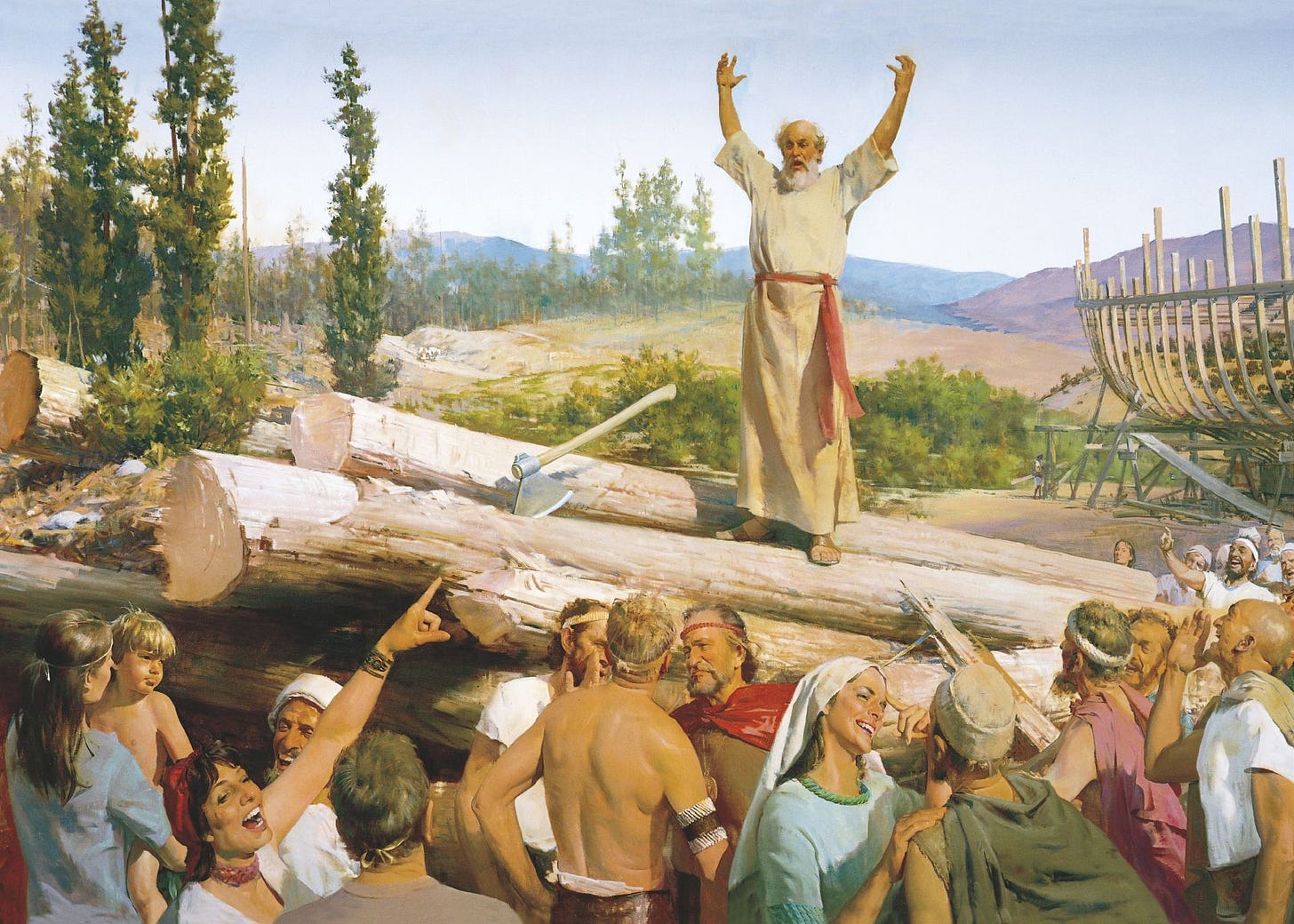
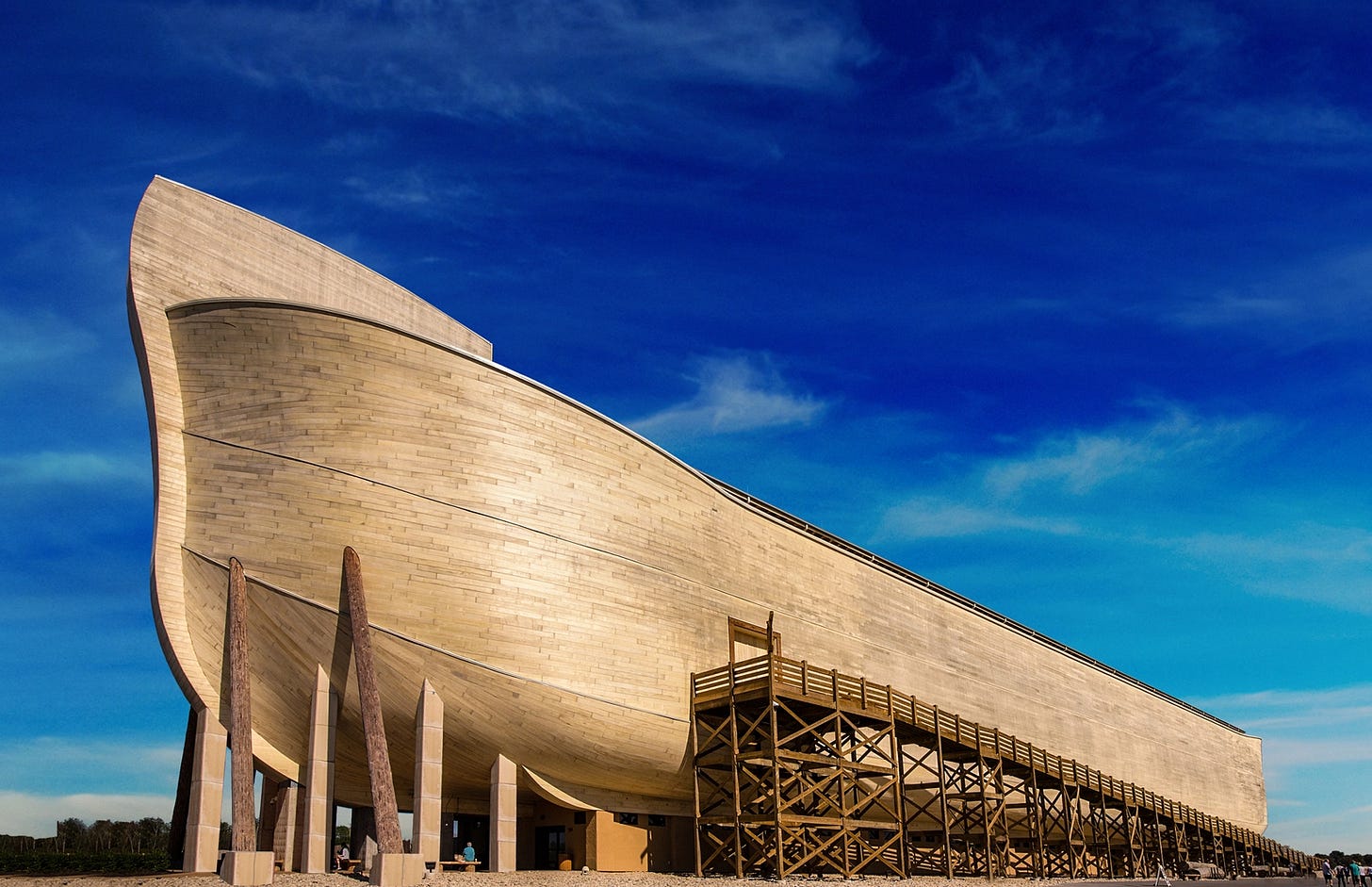
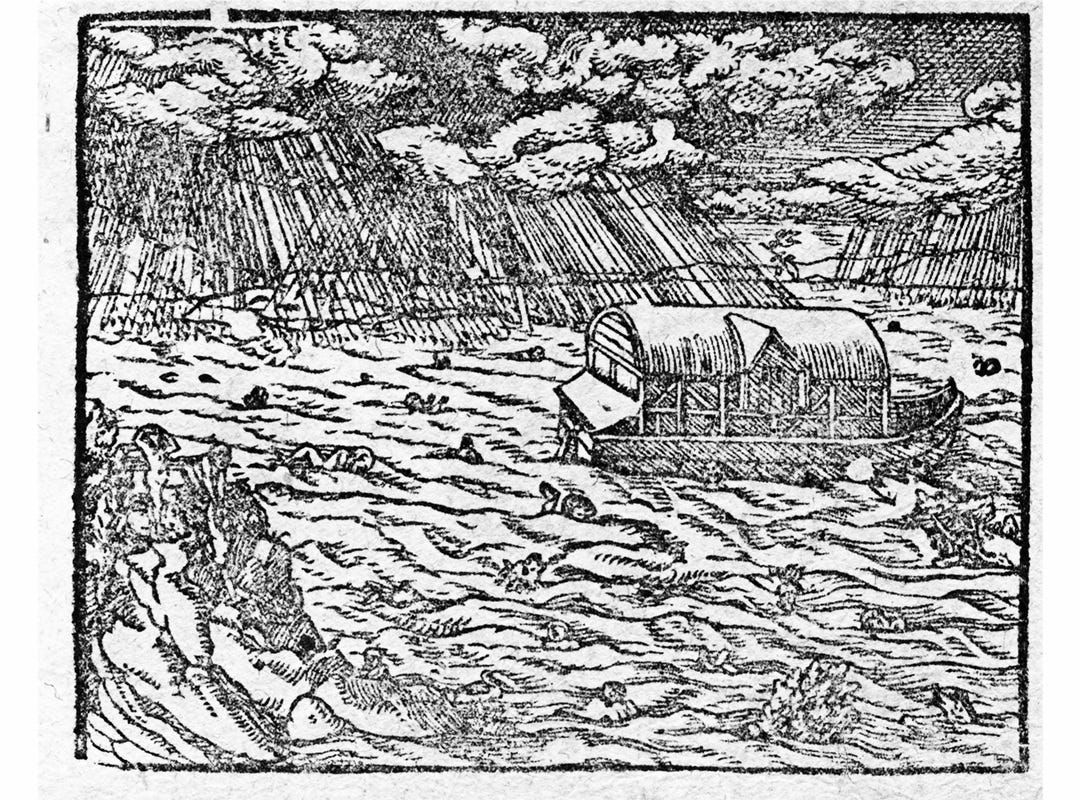
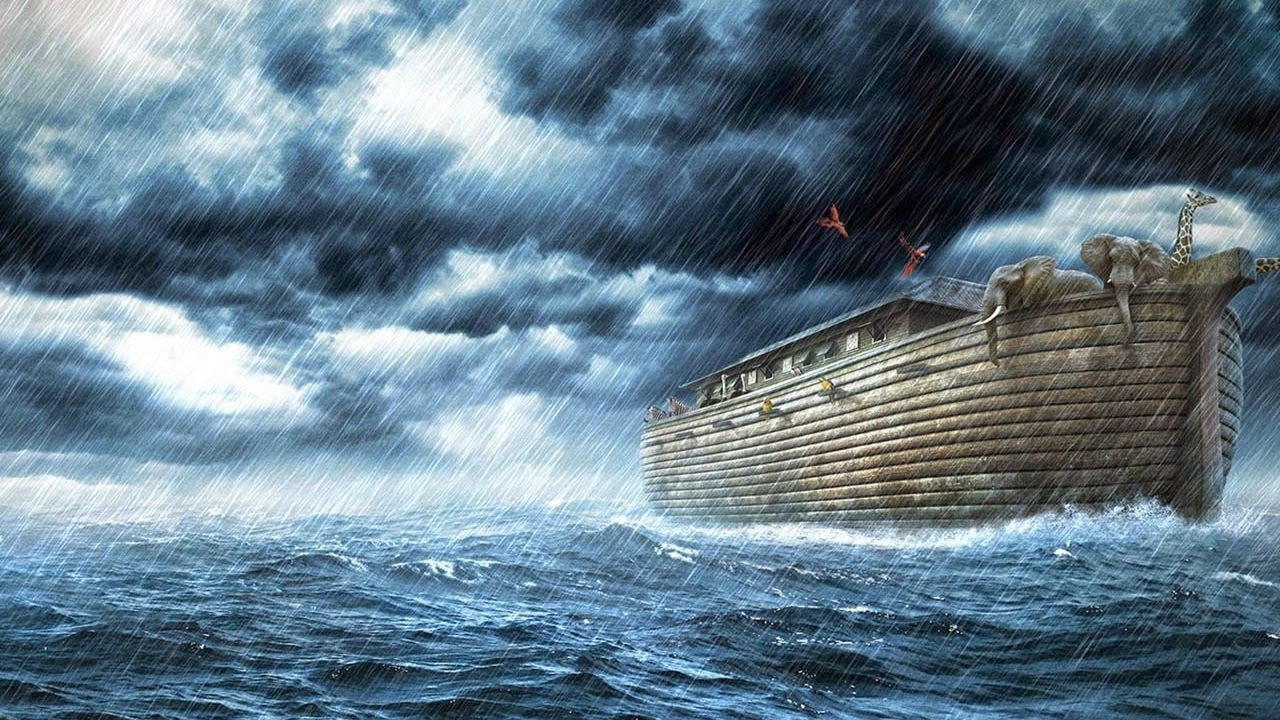

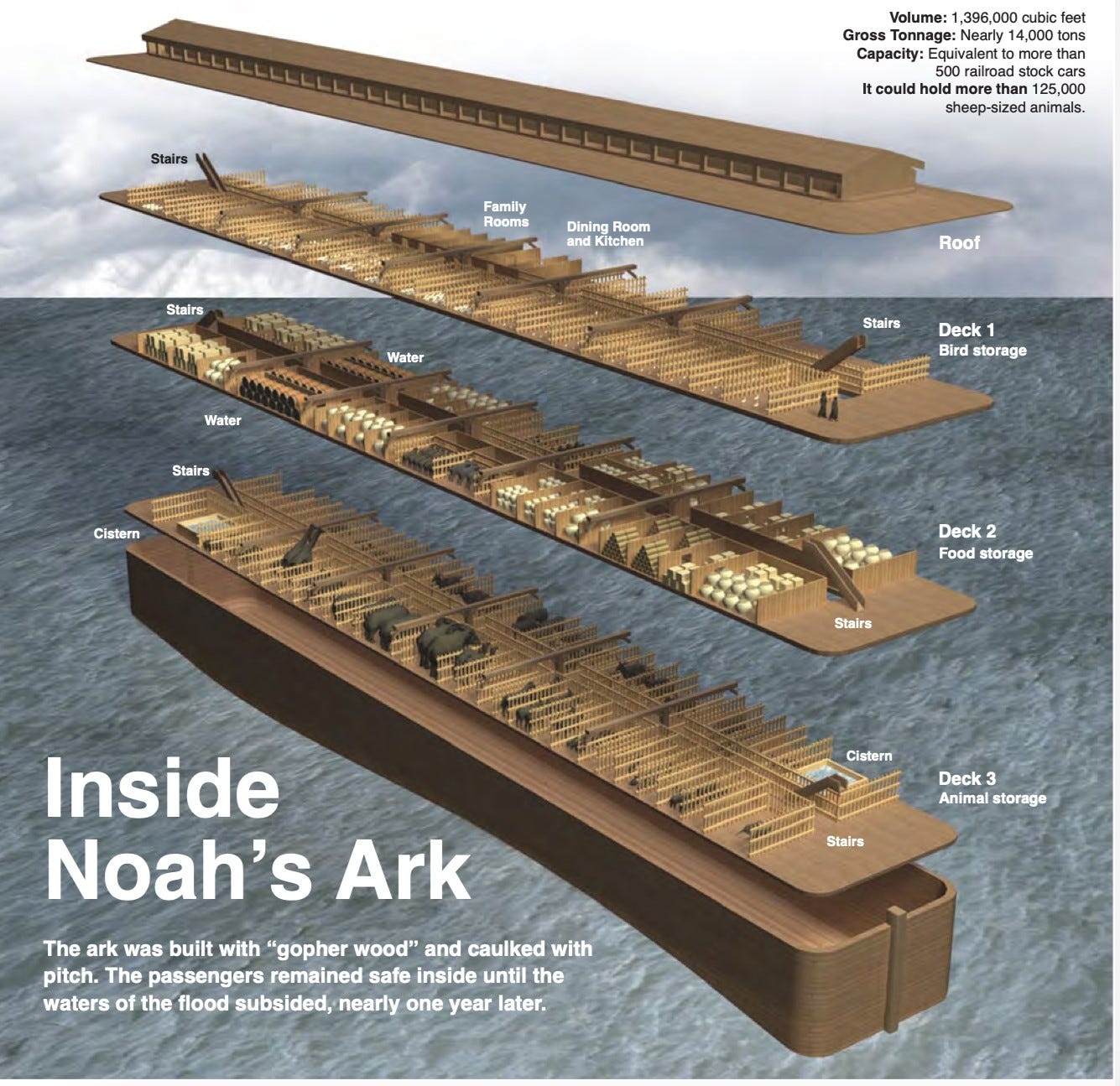



Mr. Allen,
Thank you for this interesting essay. I found the link to it by sheer coincidence while reading one of your posts commenting on a Spectrum article published on August 22, 2023, "Dead to the Holy Spirit", written by Chuck Scriven.
Some time ago I had independently come to the same principal conclusions as you have in this essay: 1. Noah didn't build the ark for 120 years; and 2. Noah didn't preach for 120 years. As to the second point, I think you floated right past one of the best arguments without availing yourself of it. Specifically, in Gen. 6:5-7 God pronounced His judgment of destruction on all of mankind, and even destruction of the animals. In verse 8, however, there is a hint of an exception to be made for Noah. In verses 13 and 17 God repeatedly stated His declaration of judgement of destruction of mankind, all creatures, and the earth itself. In verses 14, however, God told Noah to make HIMSELF an ark. Then in verse 18 God expanded the exception from destruction of humans to include, exclusively Noah and his wife and his three sons and their wives. In verses 19-21 God also extended the exception from destruction to a small gene pool of creatures, expanded somewhat in Chapter 7. Then consistent with Gen. 6:18, in Gen. 7:1 God commanded Noah and his family (and no others) to enter the ark. There was never any mention anywhere in the flood account that any other people could possibly find refuge in the ark. Their fate was already definitively sealed by God's declaration of judgment of destruction against them. Thus any suggestions that Noah tried to preached salvation to the inhabitants of the earth are completely contrary to the plain declaration of God that Noah and his wife and his three sons and their wives would be the only humans to be saved from destruction. And the conclusion of no preaching of possible salvation of other humans by entering into the ark is supported and reinforced by Jesus' words in Matt. 24:38 that all the rest of the people knew nothing about what was going to happen until the flood came and took them all away. They were completely oblivious to it all.